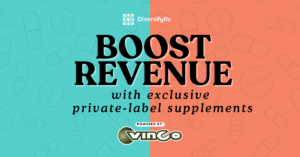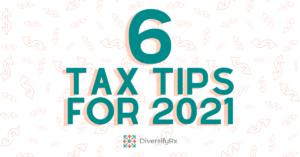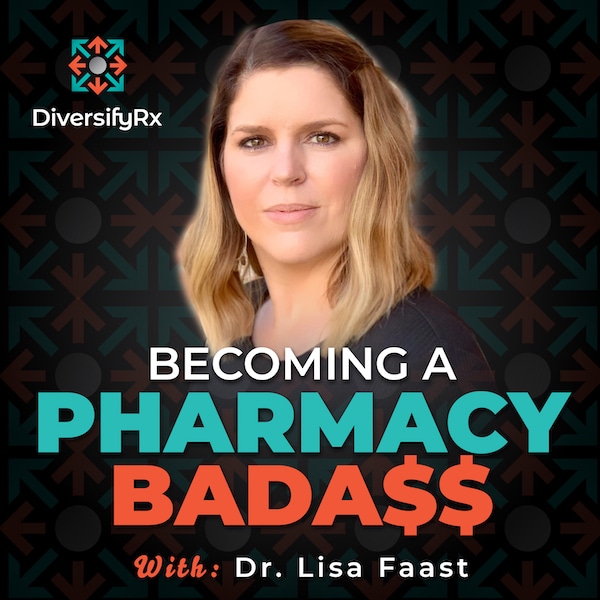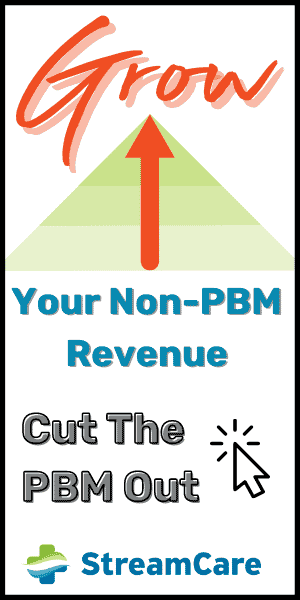Moneyball is a fantastic movie on so many levels, and my business brain can’t help but glean pharmacy business lessons each time I watch it.
Imagine an industry in which the little guys, who are cash-strapped, have to compete against the big guys with seemingly unlimited budgets.
How is the little guy supposed to win?
No, I am not describing pharmacy, but it does sound familiar, right?
The industry I was describing is baseball.
This past weekend I was sucked into watching a favorite movie of mine, Moneyball, and I was reminded of how dang good it is AND the amazing business lessons it can teach independent pharmacy owners.
Moneyball: A Recap
Moneyball tells the story of how the 2002 Oakland Athletics, a small-market baseball team with limited resources, used unconventional methods to compete with big-budget teams in Major League Baseball. At the heart of their strategy was data analysis. Instead of relying on traditional scouting methods and popular metrics, the team’s general manager, Billy Beane, turned to sabermetrics – the empirical analysis of baseball statistics – to identify undervalued players who could help the team win games at a fraction of the cost.
Ok. Let me translate for you.
A business (The A’s) was vastly outgunned by competitors (other MLB teams) with massive budgets. They couldn’t compete by offering the same thing the other guys were, which was huge contracts to attract the best players. The A’s had to play a different game to win. Sure, the rules were the same—get players around the horn and to home plate—but the strategy to deploy to get that result had to be completely different.
Sound familiar now?
The Same Yet Different
You are in the same game as our giant pharmacy competitors. And yet, how they play the game is very different than how you should play the game.
You don’t have a million-dollar marketing budget, and your independent pharmacy doesn’t own the top PBMs and wholesalers.
To win the game of pharmacy ownership, you are going to need to operate your pharmacy differently. You will need to focus on metrics different from those of the other guys, just like Billy Beane did in the movie.
Lessons for Pharmacy Owners:
Just like baseball teams, pharmacy owners like you face fierce competition, limited resources, and the constant pressure to deliver results.
By applying the lessons of Moneyball to your pharmacy business, you can gain a competitive edge and achieve greater success. Here’s how:
1. Identify Your Key Performance Indicators (KPIs):
In Moneyball, Billy Beane and his team focused on a few critical KPIs, such as on-base percentage and slugging percentage, to evaluate player performance. Similarly, as a pharmacy owner, it’s essential to identify the key metrics that drive your business’s success.
Billy focused on what he determined to be his most important difference-maker – on-base percentage. The fielding stats didn’t matter; how the guy threw didn’t matter. Lots of other things that other people thought mattered didn’t to Billy. He was focusing on his game.
What’s your on-base percentage? What data point is so critical that nothing else should matter? Whether it’s the number of new patients, gross profit percentage, or patient satisfaction scores, knowing which KPIs matter most to your pharmacy will allow you to prioritize your efforts and resources more effectively.
Negative Impact of Ignoring KPIs: Without a clear focus, you can find yourself trying to work on too much, which means you will succeed at nothing. Focusing is the true key to success. Billy teaches us this in the movie.
2. Embrace Data-Driven Decision Making:
Gone are the days of relying solely on gut instincts and intuition to make business decisions. In today’s digital age, data is king. Just as Billy Beane used sabermetrics to uncover hidden gems in the baseball world, pharmacy owners can leverage data analytics to gain valuable insights into their business operations.
I speak with so many pharmacy owners who are oblivious to raging fires burning down their pharmacies. How can they not know, you might ask?
You can’t see what you aren’t looking for.
Because many pharmacy owners or their employee pharmacists were trained by the big chains, they bring those pharmacy KPIs into their independent pharmacies. They focus on things like volume and flu shots. Those metrics are fine for the big boys, but those are not what will make an independent pharmacy successful.
You need a different set of numbers. Ensure you and your pharmacy staff are tracking the numbers that are most important for independent pharmacies. For most pharmacy owners, the top 3 KPIs are payroll ratio, inventory turns, and expense ratio. Depending on how your pharmacy is performing,, you might need to pay attention to different metrics as well.
Negative Impact of Ignoring Data: Ignoring data-driven decision-making can result in inefficiencies, missed opportunities for growth, and an inability to stay competitive in a rapidly evolving industry. Without data-driven insights, you may struggle to identify areas for improvement, leading to suboptimal performance and decreased profitability.
3. Think Outside the Box:
One of the most compelling aspects of Moneyball is its emphasis on innovation and thinking outside the box. Instead of blindly following tradition and convention, Billy Beane challenged the status quo and revolutionized the way baseball teams evaluated talent.
Similarly, pharmacy owners can’t afford to be complacent or stuck in their ways.
I love working with new pharmacy owners. They are invigorating. Why? New pharmacy owners haven’t yet built a box around themselves. They don’t have a limit on what’s possible yet. Too many times, seasoned owners aren’t even willing to try something. They talk themselves out of it before even getting started.
A great example is point-of-care testing (POCT). Those who adopted POCT early in the pandemic helped many patients and reaped a lot of profit. Last week, I was asked whether it was too late to get into POCT. This person has been thinking about it for three years and is now ready. Indeed, it is never too late; POCT will always be needed, and the boat carrying the huge profits has already sailed down the river.
Negative Impact of Resistance to Change: Pharmacy owners who resist innovation and refuse to adapt to changing market dynamics risk falling behind their competitors. In today’s fast-paced business environment, complacency is a recipe for failure. By embracing innovation and exploring new ways of doing business, you can stay ahead of the curve and position your pharmacy for long-term success.
4. Adapt or DIE:
In the world of baseball, as in business, the only constant is change. What worked yesterday may not work tomorrow, and successful teams are those that can adapt and evolve with the times. Just as Billy Beane had to constantly reassess his strategy and make adjustments based on new information, pharmacy owners must be proactive in monitoring market trends, regulatory changes, and customer preferences.
The quickest way to destroy your pharmacy is to run it like we are in 1999. Meaning:
- Buy all your drugs from a primary big wholesaler.
- Become addicted to falsely leading rebate checks.
- Fill whatever Rxs happen to come through your door.
- Only fill medications once a patient calls to say they are out.
- Use a PSAO for all your contracts and those that require you to use a specific wholesaler.
30 years ago, those strategies would have made you very successful. But in today’s industry, they will kill you.
What’s the difference?
The pharmacy industry has been a cash flow poor business model since PBMs became commonplace. We have to buy drugs upfront (cash suck #1), then we have to wait days, weeks, or months to get paid (cash suck #2). Back in the day, pharmacies made enough profit that independent pharmacy owners could handle the poor cash flow.
But now, that isn’t the case anymore. Profits have dwindled so much there isn’t enough fat left over to feed us during the cash flow starvation that happens. So, to succeed today, you need to:
- Buy for the lowest net cost (no rebate games).
- Use a wholesaler with at least 30-day payment terms.
- Contract with PBMs directly to get out of draconian PSAO effective rates.
- Proactively reach out to your patients for refills, follow-ups, and check-ins.
- Market to your community and prescribers the products and services that are more profitable. Help influence what Rx you get.
Negative Impact of Stagnation: Pharmacy owners who fail to adapt risk becoming irrelevant in a rapidly evolving industry. By sticking to outdated practices and resisting innovation, you may find yourself unable to meet the needs of your patients or compete effectively with more agile competitors.
You must adapt or die. The A’s could not win at big-money baseball just like you can’t win at a big-money pharmacy. You have to start playing a different game.
I hear daily from the pharmacy owners inside my membership, Pharmacy Badass University, on how they are winning. A recent message from one of my Inner Circle members was to celebrate making over $10,000 from an hour’s worth of work that day.
It is possible to succeed. Many pharmacy owners are having the best years of their pharmacy owners careers. All because they have decided to play the game to their advantage.
Now, as homework, go watch Moneyball.
If you would like to join our waitlist for Pharmacy Badass University membership, click HERE.














